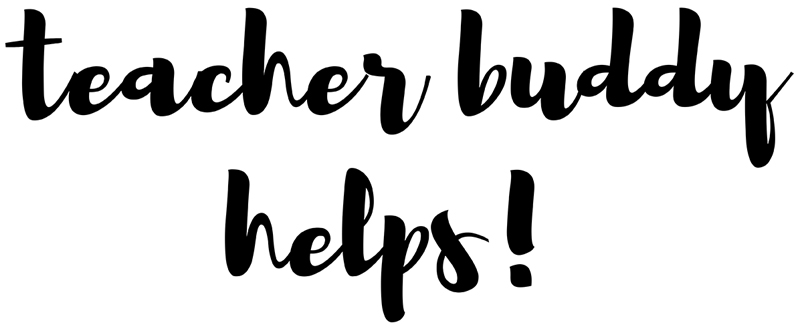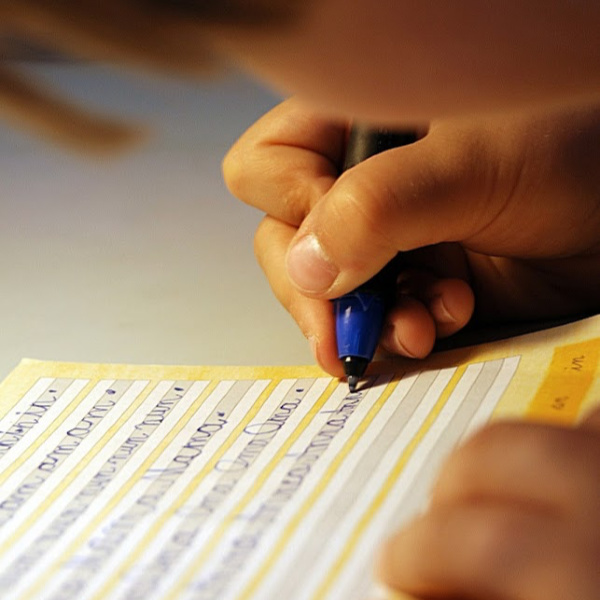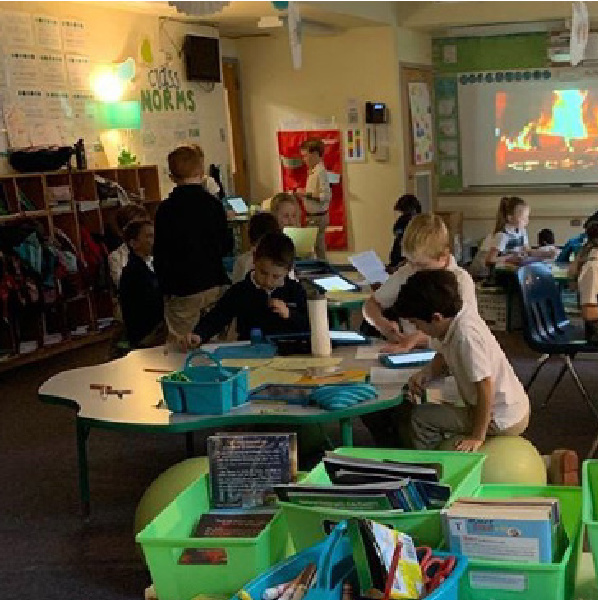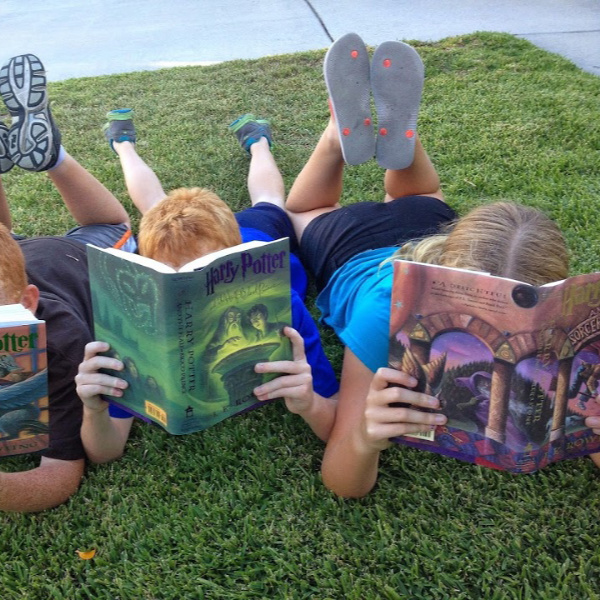20 Tips for Beginning Teachers
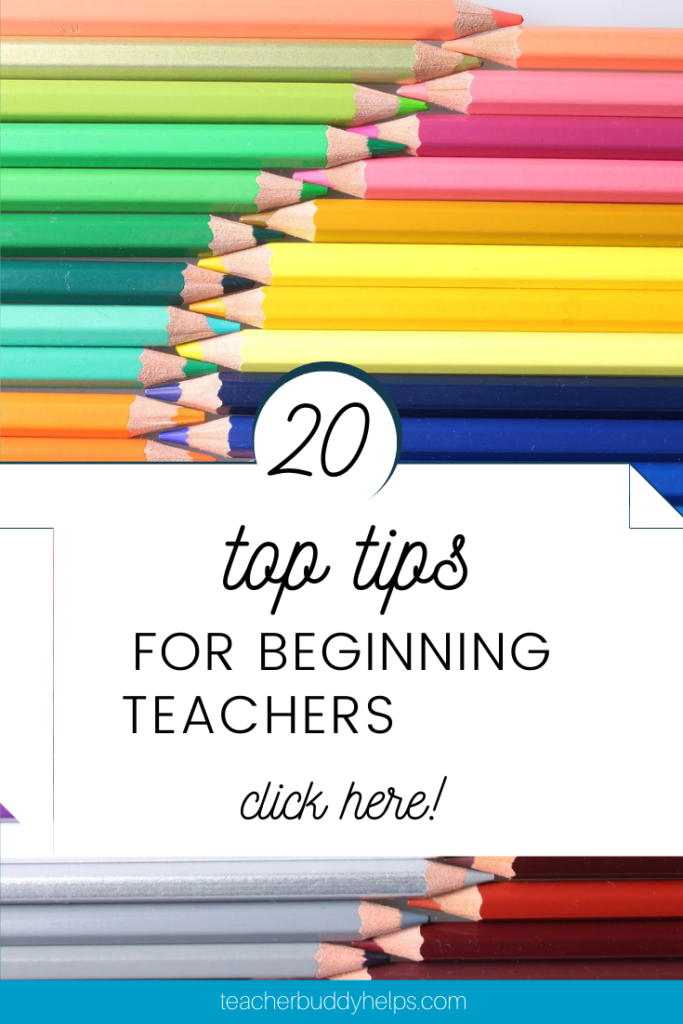
Can there possibly be twenty tips for beginning teachers? Of course, and here they are!

- Plan and prep a week ahead of time.
- Keep a “
to do ” list. - Over plan your first two years of teaching.
- Teach your classroom ROUTINES (and insist students follow them).
- Be on time for recess duty.
- Help a colleague out in a bind.
- Eat lunch with a friend.
- Clear your desk each afternoon before leaving work.
- Assign student jobs and enforce them.
- Don’t try to DO IT ALL!
- Walk at the back of your class line.
- Insist on appropriate behavior during assemblies.
- Have a behavior system that includes consequences and rewards.
- Don’t take more than two things home at night.
- Start working on report cards two weeks ahead of time.
- Create a set of EMERGENCY substitute plans.
- Allow your students to work through their mistakes.
- Admit when you make a mistake (and correct it).
- Use Active Engagement Strategies when you can.
- WRITE EVERYTHING DOWN!
Now I will explain each tip in more detail…
1. Plan and Prep a week ahead of time.
I got into this habit because of student teaching. I had a great master teacher who taught me to prep my lessons a week ahead of time. This included getting materials and supplies ready too. She was a Kindergarten teacher, so
If you get into this habit you will take away much of the nightly anxiety of “Am I prepared for tomorrow?” Because you will be. During the week, plan for the next week both before and after school (and during
YOU WILL NEVER REGRET GETTING INTO THIS HABIT!
2. Keep a “to do” list.
Having an ongoing “to do” list can be a life-saver. It takes things out of your brain space and puts it down in ink (or on your smartphone). This frees up space in your brain for all the other things you need be concentrating on. And, as a teacher….there are tons of things you’re always thinking about.
I just immense pleasure from crossing things off my “to do” list. I don’t merely put a cute little check mark after the task (or before it). NO, I take a bold marker and draw a line right through it.
Each Friday, I take my “to do” list with its numerous scratched out items and rewrite a new list (from the remaining items I still need to get to). I wrote another article where I describe more details about my “to do” list.
12 Reliable Survival Tips for First-Year Teachers
3. Over Plan for the First Two Years
I realize that two years may seem like a long time, but it will probably take that long for you to have all the different kinds of situations happen that affect your daily lessons.
Also, as you are teaching you will notice that some lessons end up going much quicker than you expected. When this happens, you either have to figure out a way to fill the extra time, begin the next subject content area, or figure out something else to do.
So, if you over plan each time, the likelihood of this happening gets minimized. However, you need to know which part of the content MUST be delivered and which is the EXTRA for when you have extra time.
The teacher’s editions for each subject area will usually have a number of extra things to use with students to extend the lesson, so use one or two and OVER PLAN.

4. Teach Your Classroom Routines (and insist that your students follow them).
There are so many little routines that teachers must establish for a classroom to run smoothly. Even something small like when or if to sharpen a pencil can throw chaos into the mix.
If you’re new and in search of a list of routines, I have a FREE downloadable list that you can get here.
**
As students are learning the routines, a simple reminder is usually all that is needed to redirect your student to the correct way. If it involves the entire class, such as lining up or going to an assembly, it is a good idea to re-state what the routine and expectation
5. Be on time for recess duty.
Now everyone knows that mistakes happen, and sometimes we all forget something. But for the most part, TRY YOUR BEST TO BE ON TIME.
I used to write my recess duty for the week directly in my lesson plan book in big, bold letters (highlighted too). I would actually go through the entire year and write it in (including the location – swing, field – if your school specifies). This is a simple task to do in front of the TV at night.
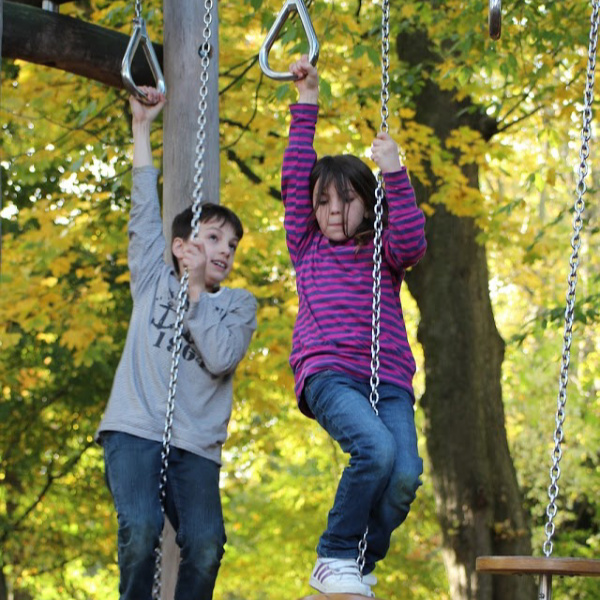
6. Help a colleague out in a bind.
We all have times when we need help with something. It might be some supplies that you’ve run out of, someone to cover your recess so you can meet with a parent who shows
Life just happens – while we are busy teaching. The most important way to help someone out is when someone has to leave unexpectedly due to a family emergency. Most schools have arranged for the emergencies, and it is nice when you can step up to help out also.
7. Eat lunch with a friend.
When I thought of this one, I was going to put “eat lunch in the staff room.” But then I remembered a school I was at that had a very negative “vibe” in the staff room and I wasn’t comfortable going in there.
So, instead I wrote “eat lunch with a friend.” Maybe your staff room is great. For 90% of the years I taught this was the case. I loved eating with my grade level team members most days.
Whatever you do, make sure you take a break – at least 15 minutes – where you are not doing a teaching-related task.
8. Clear your desk each afternoon before leaving work.
I guess I will start this explanation by saying “you don’t HAVE TO DO THIS.” But I recommend it. It is SO MUCH NICER to come in the next morning with your desk cleared off.
I found that it only took a few minutes to stack up my papers into the corner tray to await my next planning day, put the TE’s back on the shelf or one the front table ready for the next day, to dump out my cold coffee and rinse my cup, to put my pens and clips in their little containers. And then VOILA, it’s cleared.

9. Assign students jobs and enforce them.
Get your students to help you with things. They can help keep the room straight; consider assigning – a library person, a floor monitor, a paper passer, a door monitor, etc.
Whatever your class jobs are, make sure some of them are established to make your job easier. Because, after all, it’s their classroom too. And remember to ENFORCE THEM. If you have a student who is a mini-teacher, ask him/her to remind you every day about certain jobs.
Believe me, that student will remember.
10. Don’t try to do it all!
One of the best pieces of advice I got while student teaching was to not take on any “extra” duties at all (unless assigned) during your first year of full time teaching. I still believe this is excellent advice!
Some new teachers, in their excitement about their first year, are quick to volunteer to work on extra school activities. I HIGHLY RECOMMEND THAT YOU REFRAIN FROM DOING ANY EXTRA ASSIGNMENTS YOUR FIRST YEAR!
More tips for beginning teachers!
11. Walk at the back of your class line.
Teach your class your expectations for how they will walk together in a line, and enforce them. Then walk at the back of your line so that you can monitor student behavior.
Now, I completely understand that the line gets a bit wiggly the higher up you get in your grade-levels (especially high school). But the major point of this is to monitor (and correct) how the students are acting.
12. Insist on appropriate behavior during school assemblies.
I am sure you have all learned from your parents that you need to put your best foot forward in public. But not all students have learned that yet. And whether you agree with it or not, I believe that how your class behaves in public is a reflection on you!
Of course, I’m not saying you are directly responsible for your “behavior problem students”, but you must react and “do something” when students misbehave. Even something simple like making that student come and sit next to you sends a VERY POWERFUL statement to the rest of your class and to everyone else who is watching. And YES, you can do this with older students (it’s even more powerful for them).
13. Have a behavior system that includes rewards and consequences.
It is very important that whatever behavior system you put into place has a reward and consequence part. Students should have a reason to behave. I know they should behave because it’s the right thing to do, but often they need more incentive.
If you teach primary students, it can be a simple as a sticker, a trip to the treasure box, a minute early to recess, etc. For upper elementary and middle school you can initiate a token economy where students earn “money” to purchase something. Items can be “Free homework” pass, 3 extra credit points, a book (that you get free from Scholastic), early dismissal, etc.
Your rewards can be as creative as you can be. For the consequences, be sure that they increase in severity ending with a trip to the Principal or Assistant Principal. Just be sure the first stage is a warning (such as their name on the board).
14. Don’t take more than two things home at night.
There is a high probability that whatever you take home will remain in the cart or bag until you take it back to school again the next morning. I have spent my entire teaching career taking things home and not touching them because I am either exhausted or dealing with my own children and their activities.
But, every once in a while I get something out and work on it, which is why I continue to take things home to this very day.
Because this statistic is rather true, try to limit your items to “no more than two.”
15. Start working on report cards two weeks ahead of time.
I figured out this tip after about ten years of teaching and I wished someone had told me this earlier. There are a number of things you can complete ahead of time on report cards.
Some ideas are: entering the student name, grade-level, your name, their citizenship grade, a comment or two, the grades for a subject you are finished with for now (such as science – if you are in the middle of a social studies unit.
There are a number of students that you know what you will write for the comments, such as your little star student who is a dream to teach, or the one that has challenges staying seated during the day.
The things that will need to be completed at the end are; any subjects requiring a final test grade, your absences and tardies.
If you do your report cards over a two-week time period, they will not feel so overwhelming at the end when they are due.
16. Create a set of EMERGENCY substitute plans.
It is such a HUGH BENEFIT to have a set of EMERGENCY SUBSTITUTE PLANS! Similar to what I explained in item #1 above regarding planning a week ahead of time, you will also relieve stress for yourself by having this backup set of plans available at all times.
Imagine your sweet baby gets a fever and you rush to the hospital in the middle of the night. The last thing you want to think about or stress about is your classroom the next day. If you have this set of plans ready to go, you can concentrate all your attention on your child. WIN-WIN!!
My suggestion is to leave this set of plans with the secretary in the office (or administrative assistant – if that’s what you call them). Then all you have to do is make a quick call for a sub (or an app on your phone) and then another call or text to tell the school to use the emergency plans you have left in the front office. Done, and done!!
17. Allow your students to work through their mistakes.
Making mistakes is part of life, and it is how we learn. Allow your students to make mistakes. Too often, we just want to do a task quickly ourselves rather than wait for a child to do it. But learn to “let go” of this and let your students struggle a little. I wrote another article about learning by mistakes. You can read it here: Learning by Making Mistakes.
18. Admit when you make a mistake (and correct it!)
And, speaking of making mistakes….admit your own mistakes, correct them (when possible) and move on!
The worst thing you can do it to ignore a mistake. People will respect you much more in the long run if you own up to your error and apologize (if one is needed).
And the sooner you do this, the better you will feel because it will be off your mind. You would be surprised how many people will accept your apology and move on.
19. Use Active Engagement Strategies when you can.
Active Engagement is so very important. The more students are engaged in the lesson, the more they will learn. It’s as simple as that. If your need ideas for Active Learning (Engagement); just google or check Pinterest. There are so many ideas out there.
20. Write everything down!
I bet you’re thinking; “she already told us to make a TO DO list,” and, yes I did, but this is different. When I say write everything down I am talking about all the little bits of information that floats around in your brain.
If it is something for the “to do” list, then add it. If it is about a child, write it down, maybe it is something you need to tell your husband or wife, write it down.
My suggestion is to have a notebook with each child’s name on a page with tabs for the names. Then you can just attach the “post-it” note directly in the notebook instead of searching for the book when the thought comes to you.
Keep post-it notes all over so you can jot something down. Take a pad out to recess, or use the “notes” section on your phone.
If you get into this habit, you will slowly begin to organize your mind and thoughts and life will become easier. I PROMISE!
WOW! We made it through the list of 20 Tips for beginning teachers. Let me know what you think. Which one was the most useful?
Until Next Time,
Your Teacher Buddy
